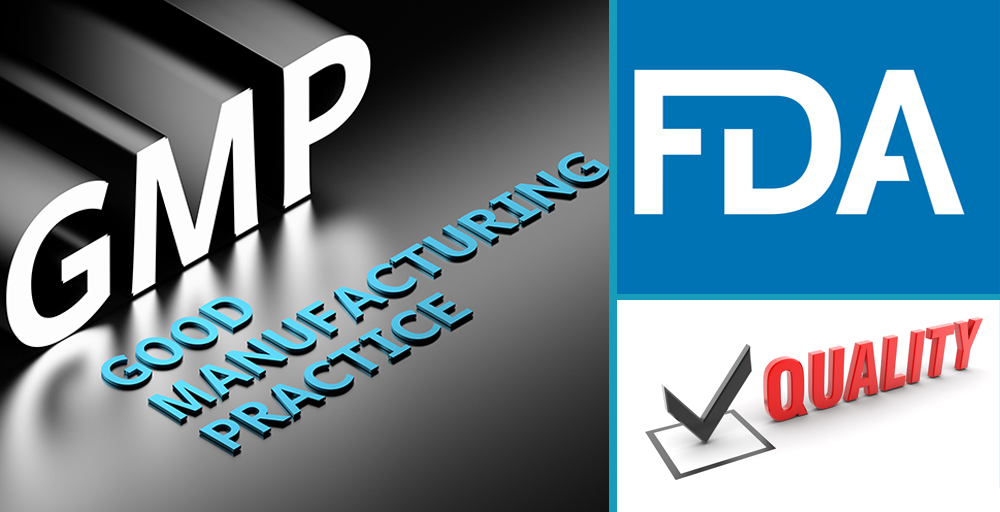The life science industry is built upon a foundation of precision, quality, and compliance. Ensuring that every product meets the rigorous safety standards set by regulatory agencies is a challenge especially considering the increased utilization of expert contract labs such as CS Analytical. However, the use of current Good Manufacturing Practices (cGMPs) helps streamline the complex manufacturing process as products change hands. cGMPs assist the industry by providing a baseline framework for facilities across the country and even the world to operate in a consistent, reliable, and compliant manner.
 Some of the earliest published GMP guidelines were those created by the WHO in 1969 following the thalidomide tragedy which emphasized the need for a level of scrutiny and common practice guidelines in the pharmaceutical industry. The US and many other countries soon followed in the upcoming decade with the FDA publishing the 21 CFR part 210 and 211 guidelines in September of 1978. These outlined cGMPs in the manufacturing process for drugs as well as finished pharmaceuticals respectively that are stilled used to this day. In the US today, cGMPs are enforced by the FDA and focus on maintaining a high degree of quality, consistency, and traceability in the manufacturing, packaging, and processing of life science products by following certain key principles:
Some of the earliest published GMP guidelines were those created by the WHO in 1969 following the thalidomide tragedy which emphasized the need for a level of scrutiny and common practice guidelines in the pharmaceutical industry. The US and many other countries soon followed in the upcoming decade with the FDA publishing the 21 CFR part 210 and 211 guidelines in September of 1978. These outlined cGMPs in the manufacturing process for drugs as well as finished pharmaceuticals respectively that are stilled used to this day. In the US today, cGMPs are enforced by the FDA and focus on maintaining a high degree of quality, consistency, and traceability in the manufacturing, packaging, and processing of life science products by following certain key principles:
- Personnel training and qualification – Ensuring that all personnel have adequate education, training, and experience in their assigned functions is essential for producing consistent and accurate results. Additionally, continued training is critical to ensure that employees remain proficient in their operations and understand of cGMP regulations.
- Documentation and record-keeping – Proper documentation establishes a clear and detailed picture of what the manufacturing functions have accomplished in the past and what they are currently doing. This transparency is essential for the various stakeholders involved in the manufacturing process such as drug product manufacturers, regulatory bodies, or contract laboratories.
- Quality- A responsibility of quality units is to oversee, review, and approve or reject manufacturing processes and results. If errors have occurred throughout the manufacturing or testing process, quality units will perform investigations to identify the root cause and remediate the issue.
- Regular audits and inspections – Audits and inspections ensure that facilities consistently maintain compliance with the appropriate quality standards and current best practices. These inspections can be performed internally, by a regulatory body, or by a client.
The widespread implementation and success from the use of cGMPs is proof of their impact on maintaining and improving the efficiency of the manufacturing process. Additionally, cGMPs serve to ensure the safety of the final product by minimizing contamination, identifying defects early, and preventing issues from propagating downstream. This ultimately protects the end user of the product from harm and helps establish trust and reliability in the life sciences industry.
As the industry becomes increasingly dependent on the use of contract organizations for manufacturing, packaging, and processing of drugs, the number of hands each product touches throughout the course of its lifetime has only increased. As such, it is of the utmost importance that cGMPs are followed and prioritized by the organizations involved. By maintaining an adherence to cGMPs, multiple labs can function together as one large manufacturing system following a common and agreed upon set of base guidelines despite being in run by different companies in different locations.
As a contract lab serving the pharmaceutical packaging industry, CS Analytical is FDA registered and maintains compliance with cGMPs to function as a seamless extension of the manufacturing pipeline. Maintaining systems that are line with 21 CFR Parts 11, 210, 211, and 820 ensures that we can produce high quality data and results to help clients meet all their product packaging needs. This system enables us to adapt to client requests and demands in a timely manner and provide security that all the information and data produced will be stored, handled, and distributed securely and compliantly as they would in any cGMP facility.
cGMPs are the baseline of nearly all the work being done in the modern life science manufacturing industry. Ensuring that laboratories follow a uniform and strict set of guidelines ensures that the products that can improve patients’ lives are as effective and as safe as they can be. In the ever-evolving landscape of the industry, cGMPs create a common language for companies, contractors, and regulators to work together and produce revolutionary results.

